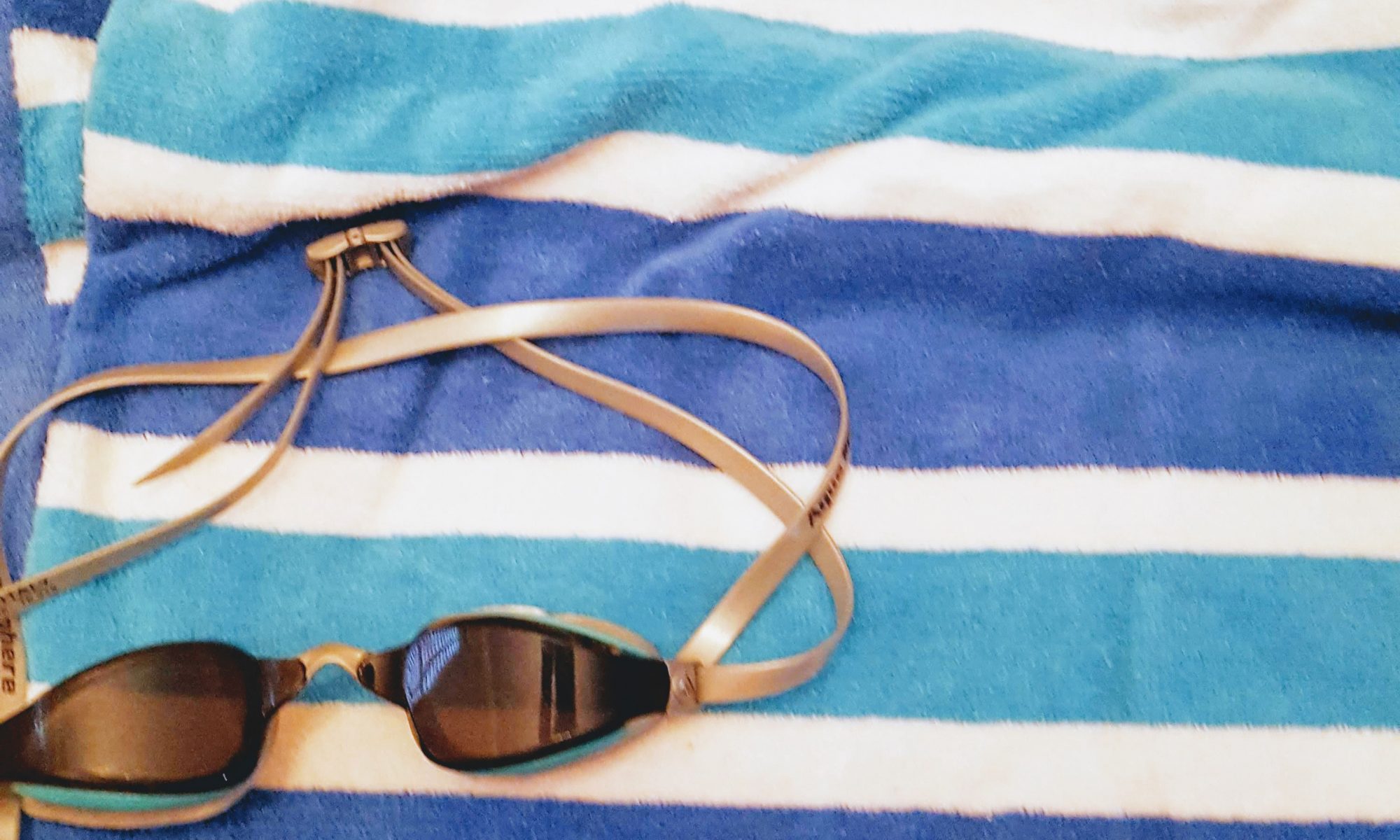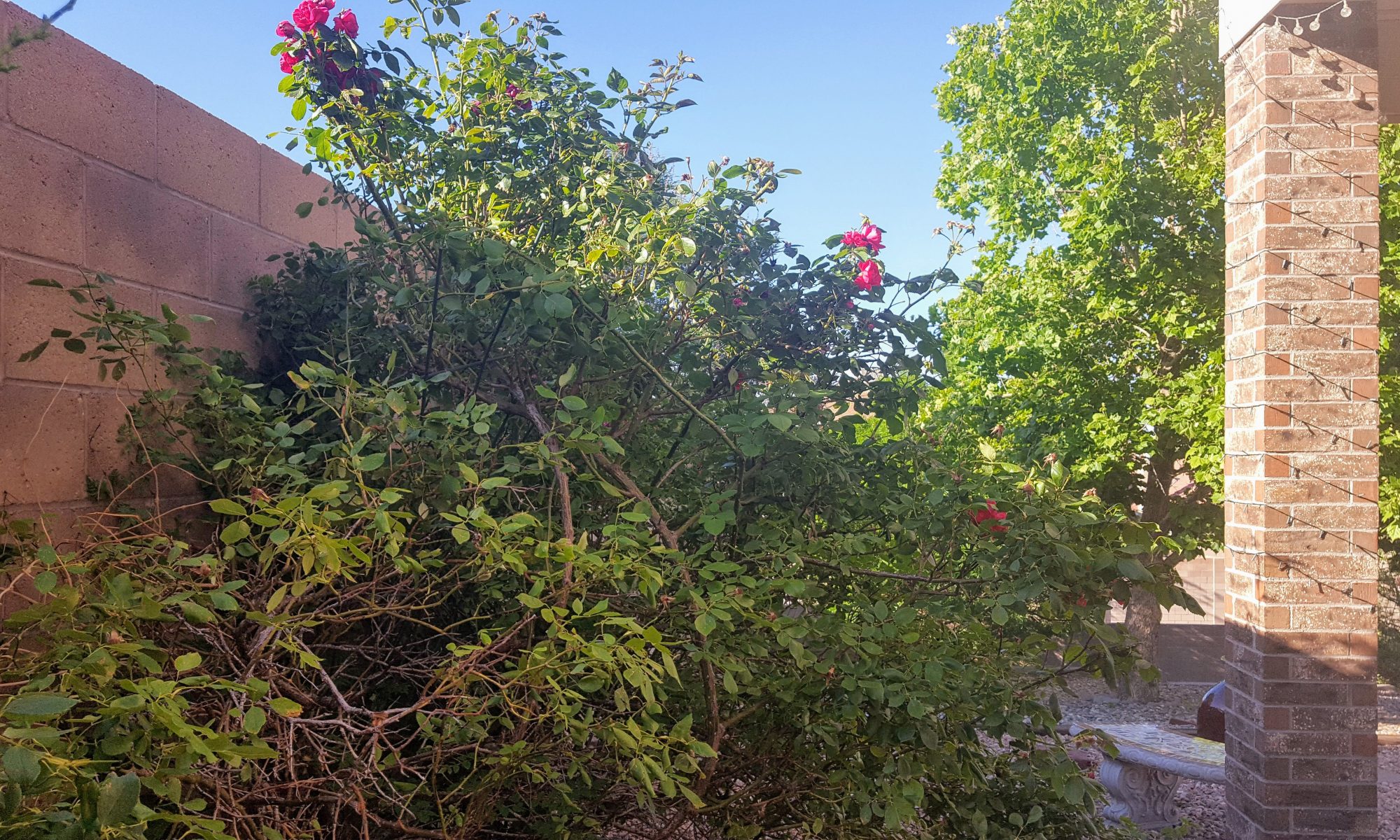When I was in sixth grade, I wrote an essay about an old family story and was asked to read it over the P.A. system. I don’t remember all of the details, but the important part of the story happens when Gracie and Vader (some degree of great-grandparents) hear a knock on their door late one night when they are in bed.
The knock is followed by their daughter’s voice, saying, “Mom, Dad, I’ve come to say good-bye.” She was living far away at the time and couldn’t possibly be there, but they both heard her.
It wasn’t until sometime the next day that they heard a different knock on the door and learned from the police that their daughter had died the night before. They knew then that she had indeed “come to say goodbye.”
I’ve been trying to figure out what it means to know something. My husband will confirm that I’ve never met a button I didn’t push. “What’s this do?” I’ll say, already pushing the button, whether it’s on the dashboard, or the furnace, or his new camera. It’s not enough for me to hear his answer, “it adjusts the zoom,” or “it lights the pilot”—I have to see what that means by trying it out for myself. Once I’ve poked, prodded, and explored, I can relax, confident that I know exactly what that button does.
I found some tangible evidence of things I know while I was looking for a copy of that old essay. I pulled a folder labeled “St. Louise” out of a milk crate in my closet and was astounded to see all the things I know.
Apparently, I have hand-written, illustrated, and gotten good grades on lab reports on such diverse topics as Basic Principles in Electricity; Micro-Organisms (this one includes a drawing of the life cycle of a mold); Chemical, Physical, and Nuclear Change; and lots of reports on phylums, including Chordata, Arthropoda, Echinodermata (those cool spiny-skinned animals), and Molluska.
I have also written broadly (and in cursive) about diverse topics in the social sciences, including Racial Relations in the North and South During the Gilded Age (which I covered thoroughly in 2 pages), Steamships (which includes a drawing of The Clermont), The US Indian Policy, Eli Whitney, Lillian A. Wald, and The Development of Air Power during World War One.
I also found a scrapbook from the 1976 Presidential campaign that includes my in-depth analysis of the choice between tickets: “Pineapple or peanuts?” Wait for it.
Sadly, I have no memory of knowing anything about any of these things.
Do you know that moment when you are watching Jeopardy! when you find yourself saying words like spirilla or manganese phosphate or cheliped with utter confidence and wondering how you know these things? I learned today that the answer to that question is “What is seventh grade science?”
So. Here’s another thing I know.
A few years ago my niece was considerate enough to get married at a winery in the Finger Lakes in upstate New York. Glenora Wine Cellars has an inn, a restaurant, and down the hill toward Seneca Lake, a cottage. My sister rented the cottage, and I stayed there with her and her husband; my nephew, his wife, and their baby; and Sarah, until her wedding night. The two families slept in bedrooms upstairs while Sarah and I shared a closed-in porch on the back of the house.
On Sarah’s wedding night, I had the porch to myself. Sometime around two or three in the morning, I woke up and heard people talking in the front room. My porch was separated from the main house by a sliding glass door that we’d been leaving open. On the other side of the glass door was a small dining room, and directly in front of that was the family room.
The soft voices made me think the baby had woken everyone up, and now that he seemed to have fallen back to sleep, the parents and grandparents were relaxing together before heading back to bed.
I had to go to the bathroom, but I was afraid I’d wake the baby if I went into the front room and joined the conversation, so I tried to stay invisible as I slipped through the open door. I could see shapes in the dark room that matched my assumption of what was going on, and I could hear them all talking softly. As I came out of the bathroom, I saw and heard them again. It was a sweet moment, and I fell peacefully back to sleep.
Sometime in the middle of the next day I turned casually to my nephew’s wife and said, “So, you guys must have had a rough night.”
“What do you mean?” she asked me, genuinely confused.
“Mason had you up for a while, didn’t he?”
“No, he slept great,” she said. She looked at me a little funny when I said, “Seriously?” and reassured me that she and her husband and baby had had a deliciously full night of sleep.
A little later I tried to get a different answer from my sister. “Were you guys up with Mason last night?” I asked Judy, thinking that maybe the thoughtful grandparents had heard the baby crying and decided to let the tired parents sleep.
Again, “No, we slept all night.”
Imagine that you know that you ate a bowl of shredded wheat with blueberries this morning for breakfast. You know it the same way you know everything: you touched it, you saw it, you pushed its buttons. Then imagine that people you love and trust insist that there is no such thing as shredded wheat. That’s how I felt all day as we hiked the waterfall in Watkins Glen. I kept reliving those nighttime moments, trying to find a way to believe they hadn’t happened.
As we climbed toward the top of the waterfall, I found myself wondering about the Underground Railroad. Now, I am not a person who goes through life spontaneously thinking about historic events. At no other time in my forty-nine years has the Underground Railroad popped into my head as I hiked along a waterfall. But there it was; as the afternoon passed, I became convinced that the family I had seen, heard, and felt emanating peace and love from that room had something to do with the Underground Railroad.
For the record, I know that I sound like a crazy person here. My husband’s cousin used to take pictures in graveyards, and she and my father-in-law would circle the spirits they saw in them, and I thought they were crazy.
By the time we got back to the cottage, I was hungry to press every button I could to learn about the Finger Lakes’ involvement with the Underground Railroad. I was heading toward the porch to get my iPad when I noticed a book on the bookshelf. I don’t remember the exact title, but I think it was Emerson Klee’s Underground Railroad Tales: With Routes through the Finger Lakes Region. Remember that “They’re here!” moment from Poltergeist?
Here’s what I know for sure: There were people in that room that night. They were at peace, resting, lulling a baby to sleep. My family swears it wasn’t them. The Amazon blurb for Klee’s book notes the existence of “eight routes and 41 stations in the Finger Lakes Region.”
Here’s what my rational brain, and I expect your rational brain, thinks: It wasn’t just a wedding; it was a wedding at a winery. Of course, I had been drinking wine. I must have been dreaming. I must have seen the book on the bookshelves earlier in the week, and it filed in dutifully when my mind was looking for answers.
That’s a perfectly plausible, perfectly rational explanation. It’s not the one I believe, but it’s possible.
Later that summer, still pushing buttons to learn about my ghosts, I did some research. I found this book on Amazon: Ghosts of Genesee Country: From Captain Kidd to the Underground Railroad. The author, Ralph Esposito, leaves it to his readers to decide whether or not they believe his stories, but adds, “As for me, my money is on the ghosts.” If I’m crazy, at least I’ve got company.
I have tangible proof that I knew a lot about the phylum Echinodermata when I was thirteen, but I didn’t know I knew those things until this afternoon. The list of things I don’t know grows exponentially as I get older. I’m not even sure this whole idea of knowing holds up very well. Emily Dickinson says “Wonder—is not precisely Knowing and not precisely Knowing not.”
I don’t precisely know if there is such a thing as a ghost, or a god, or what exactly happens to that thing we were in the second (or the century) after we take our very last breath. My great (or great-great) grandparents knew their daughter had visited them as she was dying. I know there were people in that room in Dundee.
When Hamlet has to explain his dead father’s appearance to his best friend, he says, “There are more things in heaven and earth, Horatio, than are dreamt of in your philosophy.”
My husband, though, is more comfortable with the idea of me drinking too much wine than of me seeing ghosts. He points me instead to a quote often misattributed to Shakespeare that says, “The wine-cup is the little silver well, Where truth, if truth there be, doth dwell.”
I know what I think happened that night. You’ll have to decide for yourself.
++++++++++++++++++++++++++++++++++++++++++++++++++++++++++





